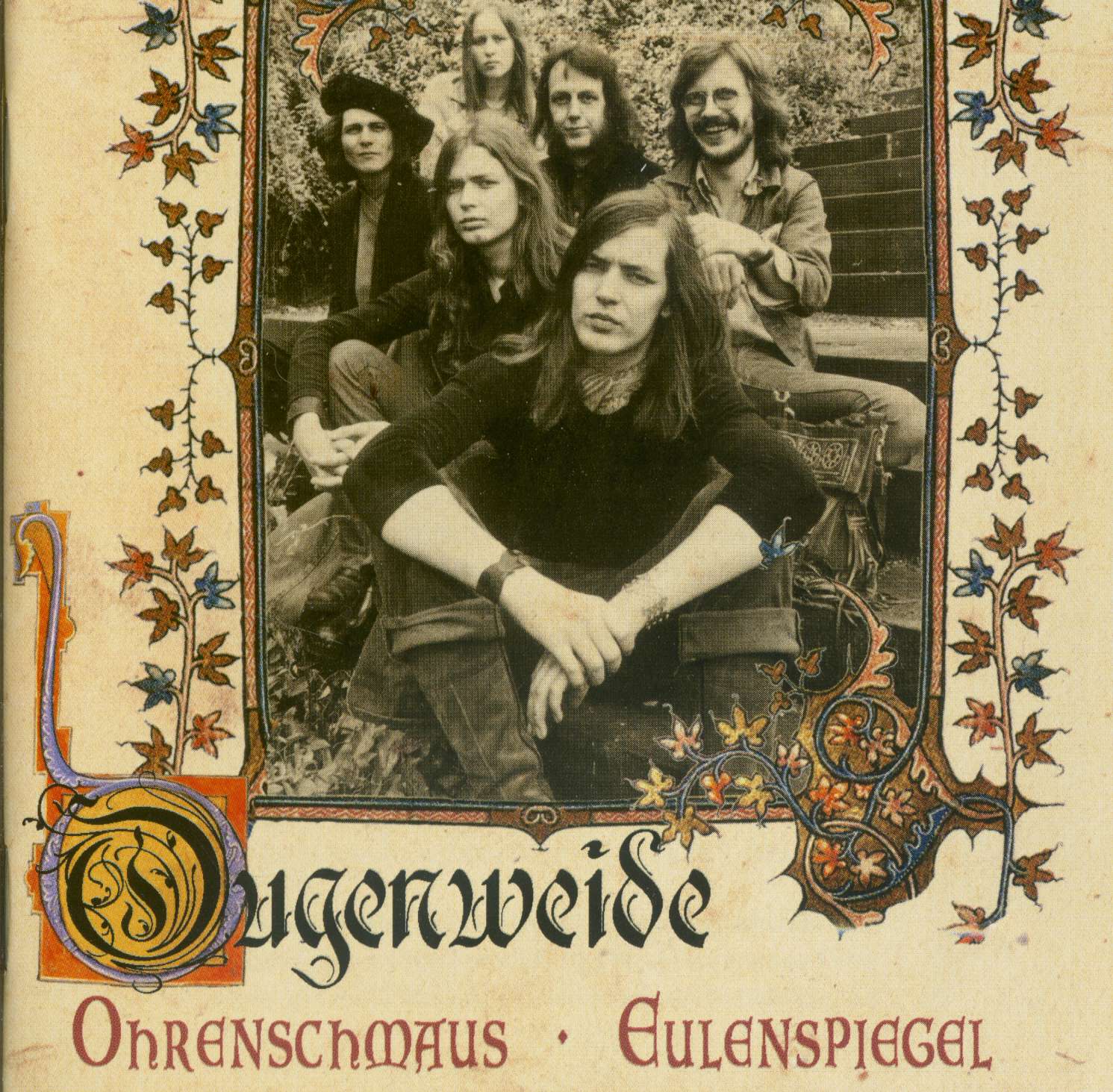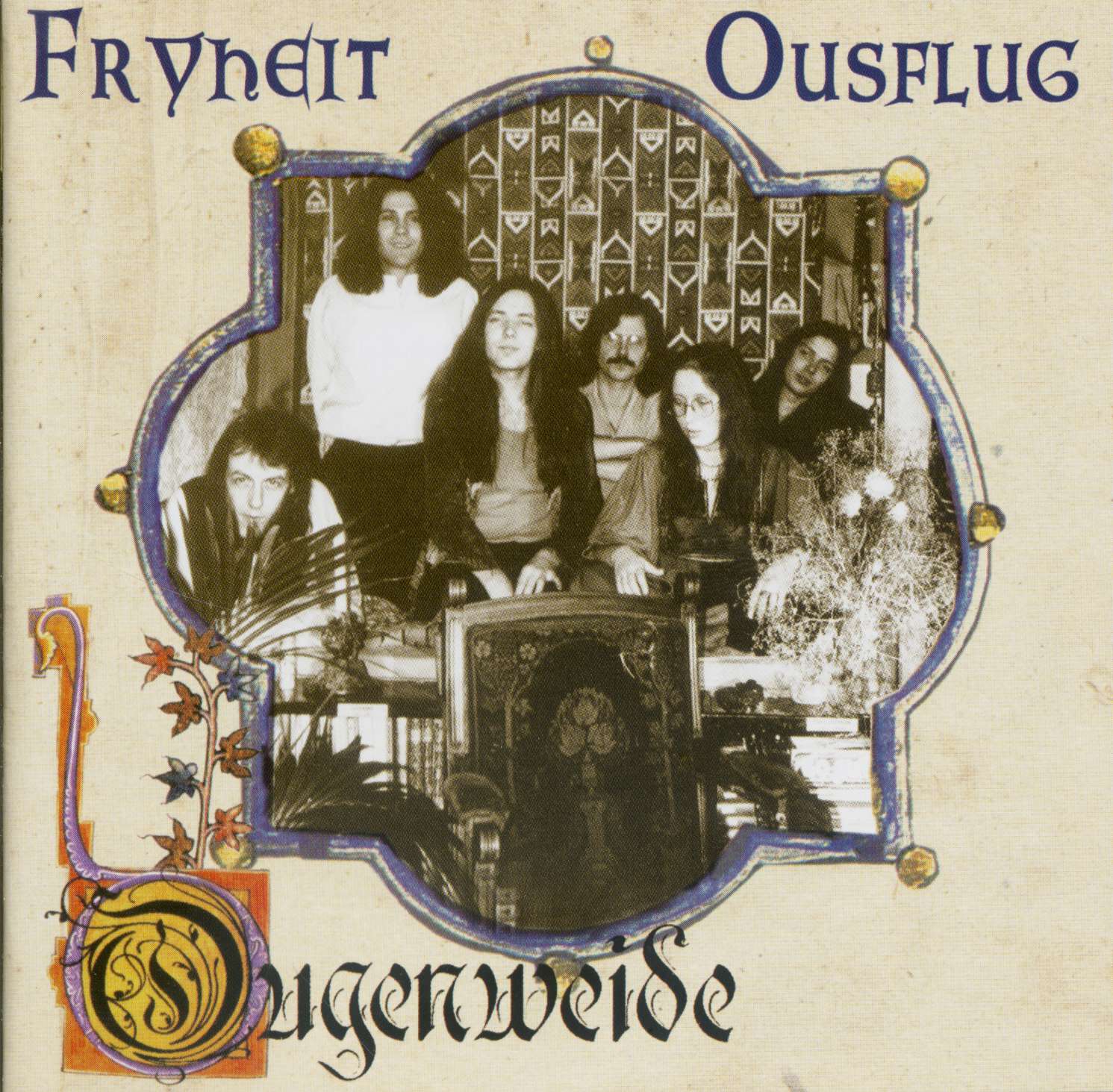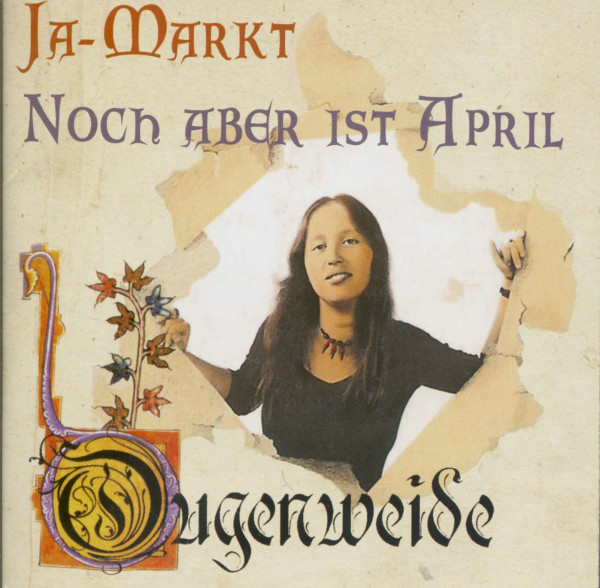Who was/is Ougenweide ? - CDs, Vinyl LPs, DVD and more
Ougenweide
Medieval Music - Minne Rock
 From humble origins in 1969 as Hamburg-based 'hobby musicians,' Ougenweide established themselves within less than a decade as an important creative force on the West German music scene. As a band, they were renowned for championing the impossible. Just like Britain's era-defining rock group Traffic had sung in 'Who Knows What Tomorrow May Bring,' it was plain that Ougenweide "were not like all the rest". Ougenweide's calling-card was setting old poetry to music, as befitted a group that took its name from a text by the Middle High German poet Neidhart von Reuenthal. Some lyrics they sang needed accompanying translations to render them comprehensible even for contemporary mother-tongue German audiences.
From humble origins in 1969 as Hamburg-based 'hobby musicians,' Ougenweide established themselves within less than a decade as an important creative force on the West German music scene. As a band, they were renowned for championing the impossible. Just like Britain's era-defining rock group Traffic had sung in 'Who Knows What Tomorrow May Bring,' it was plain that Ougenweide "were not like all the rest". Ougenweide's calling-card was setting old poetry to music, as befitted a group that took its name from a text by the Middle High German poet Neidhart von Reuenthal. Some lyrics they sang needed accompanying translations to render them comprehensible even for contemporary mother-tongue German audiences.
(If rock venues in the 1970s had had the technology to simulcast subtitles while Ougenweide sang, then sizeable sections of the audience would have been happier still.) Performing Old German texts was a leap of faith. (As was the occasional Latin.) In the process, they became West Germany's quintessential 'Mittelalter-Rock' or 'medieval rock' ensemble. With only a pinch of exaggeration, their name remains shorthand for – if not the dictionary definition of – 'Mittelalter-Rock'. Between the releases of Ougenweide's self-titled debut LP in 1973 and their second LP, 'All die Weil ich mag' in 1974.
Ougenweide had consolidated and refined their musical vision. According to one story, at the time of their debut album's sessions, their producer Achim Reichel. Who went on to produce 'Ohrenschmaus' and 'Eulenspiegel' – had prevailed on them to ditch their Fairport Convention and Pentangle repertoire in favour of German-language material. It was a decisive step. In rejecting the identikit Anglo-Irishisms and Anglo-Americanisms that plagued the West German folk scene, they were breaking new ground.
Mid-Medieval Music
 The recruitment of Minne Graw as the band's female voice and keyboardist in September 1973 – following the departure of Brigitte Blunck and Renee Kollmorgen (both of whom had sung on 'Ougenweide') – stabilized the band's personnel. Her arrival was a milestone in the band's development. She directly contributed to Ougenweide's growing popularity. Between 'All die Weil ich mag' appearing in late 1974 and the release of 'Ohrenschmaus' the next year. Ougenweide's profile in the West German music business rose considerably. In Minne Graw, Ougenweide found a transformative vocalist for the times.
The recruitment of Minne Graw as the band's female voice and keyboardist in September 1973 – following the departure of Brigitte Blunck and Renee Kollmorgen (both of whom had sung on 'Ougenweide') – stabilized the band's personnel. Her arrival was a milestone in the band's development. She directly contributed to Ougenweide's growing popularity. Between 'All die Weil ich mag' appearing in late 1974 and the release of 'Ohrenschmaus' the next year. Ougenweide's profile in the West German music business rose considerably. In Minne Graw, Ougenweide found a transformative vocalist for the times.
The closest West Germany ever came to Fairport Convention's Sandy Denny. Pre-'Ohrenschmaus,' several things had held them back. For one, they had yet to break out of Hamburg. In October 1974 with their second LP imminent, the Hamburg-based 'Sounds'. Frontrunner for the day's most authoritative rock music monthly (with a sprinkling of Liedermacher, counter-culture cinema and cult literature) – pointed out the one big hurdle in front of Ougenweide was the type of venues they were playing. As relative unknowns and semi-pro musicians, they were pounding the Beatschuppen (beat club) and Bierkneipe (bar) beat.
This circuit hardly suited Ougenweide's music. Its subtleties were getting lost amid the hubbub of beer-swilling, chat-up lines and the clatter of singing, ringing Mark-and-Pfennig tills. Communicating the intricacies of Walther von der Vogelweide, Neidhart von Reuenthal (an intriguing name that suggests the translation Old Nick from the Valley of Sorrows) or Merseburger magic spells (Zaubersprüche decades before Kate Bush sang her spell of Hem of anorak, stem of wallflower, hair of doormat) were doubly difficult back then.
Ougenweide's Sound
The Hamburg music scene wasn't very large. Hence, its bush telegraph functioned pretty efficiently, even though the city was a land of print. Ougenweide's Frank Wulff trained as a typesetter, for example. By the mid 1970s, 'Sounds' had become pretty much required reading, having somewhat filled the vacuum left after 'twen's' Hamburg publishers scuttled it in 1971, scandalised by that May's issue with its just-a-little-too-far coverage including the artist Ernst Jandl (onomatopoeia raised to eroticism), Hamburg-St. Pauli's Loddel (pimp) and Nutte (whore) underbelly and, appropriate bedfellow, the Rolling Stones.
In the shocked aftermath of 'twen's' demise, picture 'Sounds' as a radical alternative to the Munich edition of 'Rolling Stone' nowadays. 'Sounds' would run several items on Ougenweide during its early heyday. The main point was that it was almost impossible not to have heard their name. In Hamburg, at very least. Word was spreading.
Copyright © Bear Family Records®. Copying, also of extracts, or any other form of reproduction, including the adaptation into electronic data bases and copying onto any data mediums, in English or in any other language is permissible only and exclusively with the written consent of Bear Family Records® GmbH.

Ready to ship today, delivery time** appr. 1-3 workdays

Ready to ship today, delivery time** appr. 1-3 workdays

Ready to ship today, delivery time** appr. 1-3 workdays

Ready to ship today, delivery time** appr. 1-3 workdays

Ready to ship today, delivery time** appr. 1-3 workdays

Item has to be restocked
